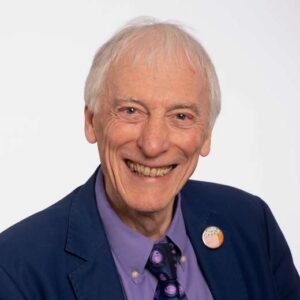Alan Fairlamb honoured for an outstanding career by the British Society for Parasitology
This years’ British Society for Parasitology (BSP) Trypanosomiasis & Leishmaniasis Seminar recognised Alan Fairlamb as one of the giants of molecular and biochemical parasitology.
 The BSP Seminar was held in České Budějovice, Czech Republic with the last two days given over to a special celebratory session to recognise Alan Fairlamb.
The BSP Seminar was held in České Budějovice, Czech Republic with the last two days given over to a special celebratory session to recognise Alan Fairlamb.
Organised by Mark Field from the School, the event was attended by David Horn, Susan Wyllie and Mike Ferguson of the Division of Biological Chemistry and Drug Discovery (BCDD) and WCAIR, several BCDD researchers and a host of international parasitologists.
Leading scientists and former Fairlamb lab members gave talks describing the impact and influence of Alan’s work, collaboration and friendship on their careers, science and drug discovery. Luminaries who gave talks included Piet Borst, Steve Beverley, Carl Nathan, Susan Wyllie and Elizabeth Winzeler. Alan topped off the event with heartfelt thanks of those that influenced and supported him throughout his 57-year career, 25 of it spent in Dundee.
Alan made many seminal discoveries and contributions over his long and productive career. Some major highlights include:
- The discovery of the trypanosomatid-specific redox controller trypanothione, and elucidation of its biosynthesis and exploitation for drug discovery
- Recruitment of Bill Hunter to Dundee, establishing structural biology
- Annotation of the metabolic pathways of the malaria parasite genome
- Genetic and chemical validation of numerous parasite drug targets
- Co-establishment of the Drug Discovery Unit, leading to six drug candidates entering clinical trials
- Repositioning of existing drugs into parasite diseases
Mike Ferguson commented, “Alan is a superb biochemist, enzymologist and parasitologist who’s experimental rigour is universally acknowledged. He has dedicated his professional life to neglected infectious disease affecting impoverished societies. He has extensively advised WHO, Medicines for Malaria Venture (MMV), Drugs for Neglected Diseases initiative (DNDi), GSK Tres Cantos Open Lab, Wellcome Trust, MRC and many others.”
“The whole community wishes him all best wishes in his ‘retirement’ and will be calling on him often! Life Sciences at Dundee owes him a huge debt of gratitude, not only for all his research outputs, committee work, and for leading BCDD for many years, but also for his support in getting the Wellcome Trust Building funded; Philip Cohen’s case to Wellcome to fund the construction of the Wellcome Trust Building (WTB) was contingent on Alan (and Angus Lamond) moving to Dundee”